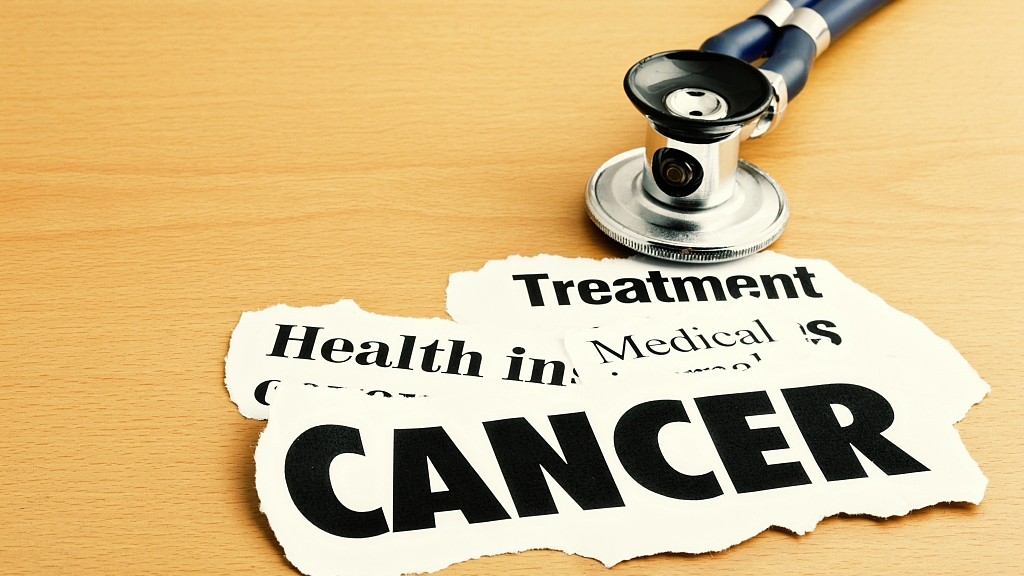Cancer – a term which frightens many and offers individuals worry, hope. With cancer becoming more widespread worldwide, determining its specificities – from pathogenesis to treatment – is more essential than ever before. We help you move around the cancer field, highlighting its most common kinds, risks, treatments and preventions. We will navigate this complex illness and share prevention, early detection, and compassionate care methods.

Understanding Cancer
Cancer is fundamentally a class of diseases where abnormal cells grow and then spread unregulatedly. These cells might develop tumors or infect adjacent tissues and organs, causing abnormal processes. Cancer may occur anyplace within the body and take various forms, with differing phenotypical functions and treatment options.
Cancers Types
Cancer isn’t one entity but a complex of ailments with various defining behaviors and characteristics. You will find over 100 different cancers, ranging in origin from various cell types with specific development and dissemination patterns, ranging from breast cancer to lung cancer, prostate cancer to melanoma.
Most Common Cancers
Cancer could occur in virtually any part of the body but certain kinds are more prevalent compared to others. Knowledge of the most prevalent form of cancer is crucial for increasing public awareness, enabling earlier detection and concentrating on preventive techniques to decrease disease burden.
Cancer Risk Factors
Though the precise reason for cancer is unknown, several risk factors have been identified for people developing cancer. From genetic history to environmental exposures, lifestyle choices to infectious agents, identification of risk factors are required for specific interventions and cancer risk mitigation.
Cancer Prevention
Cancer isn’t inevitable despite its formidable reputation. Cancer is usually curable and particular lifestyle modifications and preventive measures can lessen the risk of developing it.
Screening & Early Detection
Aims frequently early detection is the primary key to successful cancer treatment and much better results. Screenings and diagnostic tests frequently detect cancer early on when treatment is best. Screenings and warning signs can be prioritized so people can protect themselves.
Treatment Options
Recent discoveries in cancer research and treatment have changed cancer care by offering a variety of targeted therapies for each patient. No matter whether it’s surgery, chemotherapy, radiation treatment or immunotherapy – the cancer treatments are developing but still provide healing and hope to countless individuals across the globe.
Cancer Patients – Supportive Care
Cancer patients frequently also require holistic supportive care besides medical therapies for their practical, emotional, and physical issues. Supportive services vary from symptom management to psychosocial assistance, palliative care to survivorship preparation, aiming at enhancing quality of life and holistic well being.
Cancer & Living with Cancer
Cancer diagnosis can be transformative, impacting all areas of an individual’s life-from physical health to psychological health, finances and relationships. Cancer journey requires resilience, flexibility and support services.
Cancer Patients ‘Coping Strategies
Cancer survivorship is hectic, but there are methods and resources to help individuals manage the psychological tolls and doubts that accompany the illness. From mindfulness to support groups, treatment to creative outlets, building highly effective coping skills are vital for developing mental resilience and regaining control and hope.
Cancer & Nutrition
Nutrition plays an immensely important part in cancer prevention and control. A diet full of fresh fruits & veggies, whole cereals, and lean proteins supplies the needed nutritional requirements and antioxidants for immune function, inflammation suppression and cell maintenance. People can maximize nutrient rich food and limit processed sugary drinks and foods, therefore lowering their cancer risk.
Cancer Risk and Physical Activity
Increasing exercise has multiple health advantages, including lowering cancer risk. Exercise keeps a healthy weight, improves the immune system, and also stimulates appropriate hormone regulation – every one of which are crucial for healthiness and cancer prevention. Add some exercise to your everyday life and you might be making good health improvements and cutting your risk of cancer.
Cancer & Mental Health
Cancer is not just physically destructive but also impacts the brain, frequently provoking grief, depression, anxiety, and fear. Psychological aspects of cancer must be dealt with to enhance patients and family members ‘mental health and quality of life.
Social Support for Cancer Patients
Social support is crucial during the cancer journey since it offers emotional validation, practical support along with a feeling of belonging amid adversity and uncertainty. Whether in loved ones, friends, online communities or support groups, others who understand and share your feelings can provide encouragement, hope, and comfort.
Cancer Financial Impact
Cancer can also be financial burdensome for families and patients. From healthcare expenses to lost earnings, childcare to transportation, cancer expenses can be overwhelming. Knowledge of available financial resources and assistance programs might ease some of the financial burden and also offer much needed encouragement during this trying time.
Coping with Financial Strain
Cancer finance needs preparation, resourcefulness and accessibility of financial assistance programs and services. From negotiating medical costs to insurance analysis, finding charities to government help programs, there are ways individuals can manage the financial strain of cancer care.
Advances in Cancer Research
Cancer research is dynamic and changing as scientists and doctors discover new therapies and approaches. From targeted treatments to precision medicine, immunotherapy to gene editing technologies, the potential future of cancer treatment guarantees far better results and enhanced quality of life for individuals worldwide.
Emerging Therapies for Cancer
New cancer treatments which depend on immune activation, certain mutations and exploit special cancer cell vulnerabilities have acquired much interest and investment recently. These innovative treatments provide patients with treatment-resistant or advanced cancers a brand new hope by offering alternative therapies and extending survival.
Cancer Survivorship
Cancer survival is a feat worth savoring — though it has its unique set of considerations and challenges. From dealing with persistent side effects to relapse fears, the changeover out of active therapy to survivorship entails ongoing encouragement, monitoring and contacts to survivorship therapy.
Planning for Survivorship Care
Survivorship care planning is a vital component of cancer care which deals with cancer survivorship following treatment completion. These personalized treatment plans describe follow up care, surveillance and suggestions for promoting wellness and health throughout the survivorship stage.
Supporting Loved Ones
It’s not only the diagnosed person who suffers from cancer; relatives play an essential part in emotional reassurance, practical help and companionship all through the cancer journey. How to speak with a cancer relative calls for empathy, patience and knowledge.

Caregivers Resources
Caregivers are cancer fighters ‘heroes, assisting and taking care of family members throughout therapy. However caring also influences the caregivers ‘physical, psychological, and financial health. Access to support services, respite care and caregiver resources is vital for caregiver health and staying away from burnout.
FAQs
Which is probably the most prevalent cancer?
Could all cancers be avoided?
What exactly are main cancer risk factors?
What must I do to avoid cancer?
Just how are cancers dealt with?
What should i do for a loved one with cancer?
Cancer is a good opponent though it isn’t defeated. We could all contribute to a lesser burden of cancer and much better outcomes for individuals around the globe with knowledge, awareness and proactive steps. Realizing the risk factors, living healthy and also accessing screening and treatments can help us and our families endure cancer with dignity and hope. Together we can move toward a world where cancer is not a feared diagnosis but a condition that could be managed and eventually avoided.
